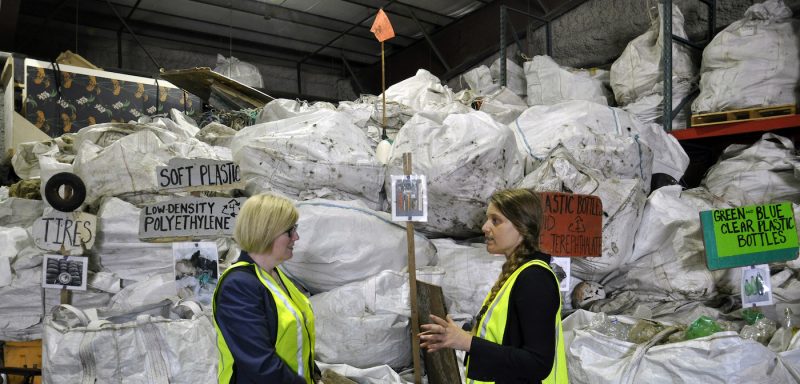Govt. funds B.C. companies to fight plastic pollution
“Currently, options for collection and recycling of marine gear have been very limited, often leading to the long-term yard storage or landfill disposal of these plastic items,” – Chloe Dubois, Chief Executive Officer, Ocean Legacy Technologies Ltd.
By SeaWestNews
Two British Columbia businesses have been given grants from Fisheries and Oceans Canada (DFO) for their innovative solutions to minimise plastic pollution by recycling fishing and aquaculture equipment.
This is part of Ottawa’s $8.3 million to help fish harvesters, environmental groups, Indigenous communities, and the aquaculture industry retrieve abandoned fishing gear, or so-called ghost gear, from the ocean and dispose of it responsibly.
Ocean Legacy Technologies received $150,000 towards the development of proof-of concept for a marine plastics processing facility. Using innovative technology, this facility will allow the plastics from fishing and aquaculture equipment to be recycled, including plastics with organic or non-organic contamination, and those found during shoreline clean-ups.
Shift Environmental Technologies received $95,000 to develop proof of concept for an innovative Marine Debris Sled to extract and remove marine debris and ghost fishing gear from remote and hard to access coastal areas, safely and more cost-effectively than current methods. The innovative sled would deploy from a ship or land-based centre to the beach head by tow vessel, and would be loaded with marine debris before being towed to a collection point.
“The innovative projects announced today are just one part of the Government of Canada’s actions to reduce plastic waste from our environment for generations to come,” said Carla Qualtrough Minister of Public Services and Procurement Canada.
Ocean Legacy Technologies is the newly formed technology branch of the Ocean Legacy Foundation, which is focused on creating innovative technology solutions to combat plastic pollution, said Chloe Dubois, Chief Executive Officer, Ocean Legacy Technologies Ltd.
“Currently, options for collection and recycling of marine gear have been very limited, often leading to the long term yard storage or landfill disposal of these items,” she said.
Ocean Legacy has had great response from businesses, government, First Nations communities, non-profits and industry leaders to continue growing a formal program to better manage fishing and aquaculture gear at end-of-life.
“This innovation could be a game changer for our coastal communities by increasing our local plastic processing capacities to manage marine debris and industrial marine plastic materials currently entering landfill and our ocean ecosystem upon their end-of-life,” she said.
Each year, more than eight million metric tons of plastic end up in the world’s oceans. Abandoned, lost or discarded fishing gear (known as ghost fishing gear) is a major contributor to plastic marine debris.
The impact of marine debris on wildlife is significant, with World Animal Protection reporting that 92% of encounters between marine animals and debris, including ghost fishing gear, can be lethal, primarily due to ingestion or entanglement.
“Through the Government’s plastics challenges, we’ve seen small Canadian companies such as Ocean Legacy Technologies and Shift Environmental Technologies develop innovative solutions to protect our natural resources,” said Jonathan Wilkinson, Minister of Fisheries, Oceans and the Canadian Coast Guard.
These companies show that small businesses can have an important role in transforming Canada to a circular economy which minimises waste and makes the most of our resources said Wilkinson.
(Carla Qualtrough Minister of Public Services and Procurement Canada (l) with Chloe Dubois, Chief Executive Officer, Ocean Legacy Technologies Ltd. – DFO Image)

